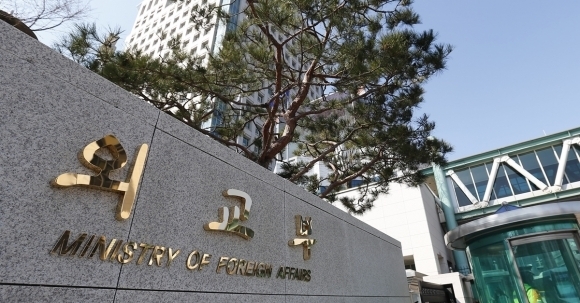South Korea warns Japan in row over forced labor ruling
By Ock Hyun-juPublished : Nov. 15, 2018 - 18:21
South Korea’s Foreign Ministry on Thursday expressed regret over Japan’s continued criticism of the recent Supreme Court ruling in favor of Koreans forced into labor during Japan’s colonial rule of the Korean Peninsula.

“The government has asked Japan through various channels that Japanese leaders respond wisely to the ruling so that it will not pose obstacles to the development of future-oriented Korea-Japan relations,” said ministry spokesperson Noh Kyu-duk in a statement.
“We once again would like to note that this kind of behavior by Japan does not help at all in resolving problems.”
The statement came after Japanese Foreign Minister Taro Kono a day earlier denounced the ruling as “fundamentally overturning the legal foundation of bilateral relations” and called for “appropriate measures” from Seoul.
The Supreme Court ruled on Oct. 30 that Japan’s Nippon Steel & Sumitomo Metal Corp. must compensate four Koreans, who were forced to work at its steel mills during Japan’s occupation of the peninsula.
Tokyo has said that the ruling on forced labor violates the 1965 treaty under which Korea and Japan settled colonial-era issues and restored diplomatic relations in return for $500 million in grants and low-interest loans that contributed to Seoul’s economic takeoff.
A diplomatic row between the neighbors is intensifying, with Japan threatening to file a case with the International Court of Justice and signalling that Japanese businesses could withdraw from the Korean market.
The Japanese Embassy in Seoul held a closed-door presentation on Thursday for Japanese businesses operating here.
Kohei Maruyama, a minister at the embassy, said during the presentation that Tokyo’s priority is to protect Japanese firms’ legitimate economic activities.
“As we have said on multiple occasions, the Japanese government’s stance stands firm that (the issue) had been solved under the 1965 South Korea-Japan Normalization Treaty completely and finally,” Maruyama said. “We will take countermeasures based on that stance.”
Some 80 people from 70 Japanese companies based in Korea were said to have attended the presentation.
(laeticia.ock@heraldcorp.com)
-
Articles by Ock Hyun-ju






![[From the Scene] Monks, Buddhists hail return of remains of Buddhas](http://res.heraldm.com/phpwas/restmb_idxmake.php?idx=644&simg=/content/image/2024/04/19/20240419050617_0.jpg&u=20240419175937)





![[Graphic News] French bulldog most popular breed in US, Maltese most popular in Korea](http://res.heraldm.com/phpwas/restmb_idxmake.php?idx=644&simg=/content/image/2024/04/18/20240418050864_0.gif&u=)



![[From the Scene] Monks, Buddhists hail return of remains of Buddhas](http://res.heraldm.com/phpwas/restmb_idxmake.php?idx=652&simg=/content/image/2024/04/19/20240419050617_0.jpg&u=20240419175937)

![[KH Explains] Hyundai's full hybrid edge to pay off amid slow transition to pure EVs](http://res.heraldm.com/phpwas/restmb_idxmake.php?idx=652&simg=/content/image/2024/04/18/20240418050645_0.jpg&u=20240419100350)

![[Today’s K-pop] Illit drops debut single remix](http://res.heraldm.com/phpwas/restmb_idxmake.php?idx=642&simg=/content/image/2024/04/19/20240419050612_0.jpg&u=)